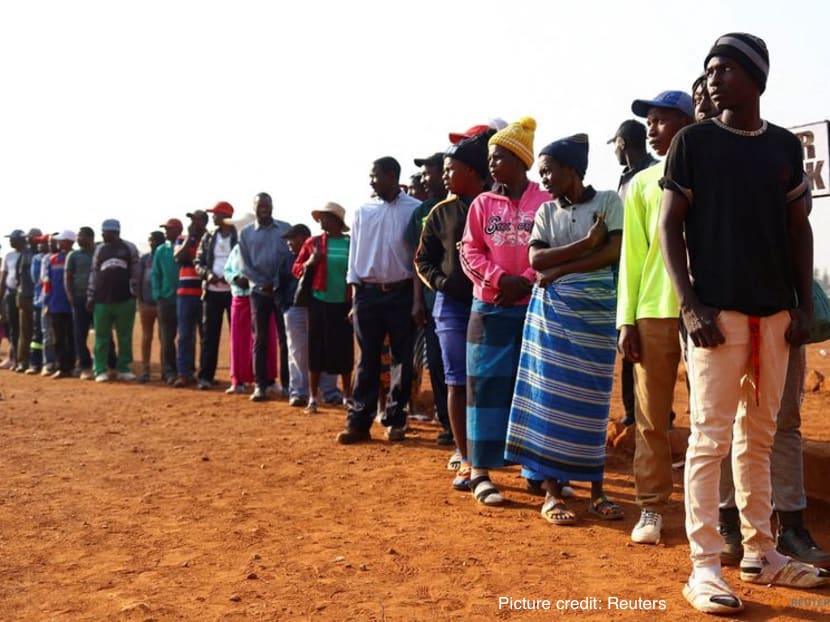



I cast my first vote at the age of 25! I remember feeling excited and overcome with a sense of power. I became conscious of the electoral process as a means of power sharing; of the collective responsibility as citizens; and of the power within me as a voter. A reflection of my participation as a voter and election monitor for over 5 electoral cycles has brought me to question what have the elections brought for me, my family, my community and my fellow sister-citizens. In Zimbabwe where I reside, elections are held after every 5 years since our independence in 1980. Conflict, harassment, intimidation and violence have appeared to be synonymous with elections in my context. While elections have created space for the pinning of my hopes and aspirations but their conversion efficacy of these is very low.
The role of elections and different actors was the subject of discussion at a recent dialogue and exchange I attended. Elections in Zimbabwe have been declared to be held on 23 August 2023 and seem to herald with it the season of fear, intimidation, harassment, conflict and violence. Conversations around securing peace and strengthening dialogue have surfaced in and around civil society. Interesting that the mention of elections triggers conversations around peace and dialogue. Does it have to be so?
In the background, the feminist circles of women activists located across the country took time to share their aspirations and hopes from the elections. These included access to health services; peaceful election period; access to primary and secondary education; opportunities for women to occupy strategic leadership and decision-making positions; among others. Will these aspirations and more come to a reality through elections? Is the infrastructure of the electoral processes designed to deliver on the hopes and aspirations of women? Can we continue to count on elections as leverage for women’s demands? These issues are succinctly articulated in the 2017 What Women Want manifesto where women’s demands are remain relevant. There is a common thread running through the issues regardless of the community where they are based. This commonality creates a basis for women’s organizing in the 2023 elections.
The deep conversations I attended with civil society actors on the electoral processes and how they can play a role in securing peace and strengthening dialogue brought to the fore several sides to the election coin. The desire for peaceful electoral processes goes beyond just the technical electoral cycle but also extends to the satisfying of the electorate’s demands, hopes and aspirations noting that women constituted 54% of voters in the last election. Continued negation of these by the winning candidates is in itself an instigation of violence and betrayal of the psychological power-sharing pact with citizens. How can civil society influence these? How can they contribute to the transformation of power without becoming complicit?
The global, regional and national legal and policy architecture is beautiful in design but void in functionality. The CEDAW, African Charter on Gender and SADC Protocol on Gender, Zimbabwe Constitution all make good reading but the realities in the lives of women are sad. Are elections a lost cause? Can the electoral cycle achieve the aspirations of these frameworks? Can women bank on the elections to secure their demands and in turn peaceful lives? These and other questions are the occupation of the mind in the run-up to the coming elections.
The narrative of elections and its unanswered questions could require a reframing of our view, approach and organizing around them. According to Everjoice Win, “Elections are a blip, a small moment, in the bigger democracy and democratization process. What matters more is the work we do collectively in our movements. How do we build strong, feminist leadership, movements and organizations that bring us together collectively to work for the greater good? Unfortunately, as civil society we have often put too much effort into a very narrowly conceptualized idea of democracy, i.e. elections and who gets to win, rather than the social justice which should be an outcome of elections. We tend to invest far too much into who wins, rather than what the issues they stand for are. Neither have we invested enough in pushing specific issues during the electoral process. We must use elections as a moment to organize, mobilize, bring women together, make our voices heard, and continue that mobilization and pressure after the elections. We make up 90% of the change, not the politicians.”
The JASS feminist circles have adopted the election moment as an organizing moment and have begun conversations in their meetings around what women want. This is refining and sharpening the issues already identified in the 2018 election period and pushed under the ‘What Women Want campaign’. The issues seemingly remain the same now in 2023, namely; public services that work; economic justice; my body my choice; infrastructure that works; women in public life; deep accountability and cultural production. The unchanged issues are just a reflection of the incapacity of elections to address issues in the way and form that they are in. The feminist activists organized in circles have mobilized themselves to engage with the political players around issues this year. They are moving away from just following manifestos to demand the issues they want addressed by whoever wins the election. In this stride for me, then elections move away from being a game of chess aiming to checkmate one but rather a stepping stone to the securing of the demands that we have as women. Whoever wins the election is therefore our target for laying our demands, pushing our issues and securing our voices. The election is therefore not an end in itself but rather a means to an end. The end is made up of our hopes and aspirations; our futures and dreams; the beckoning horizon pregnant with opportunity!